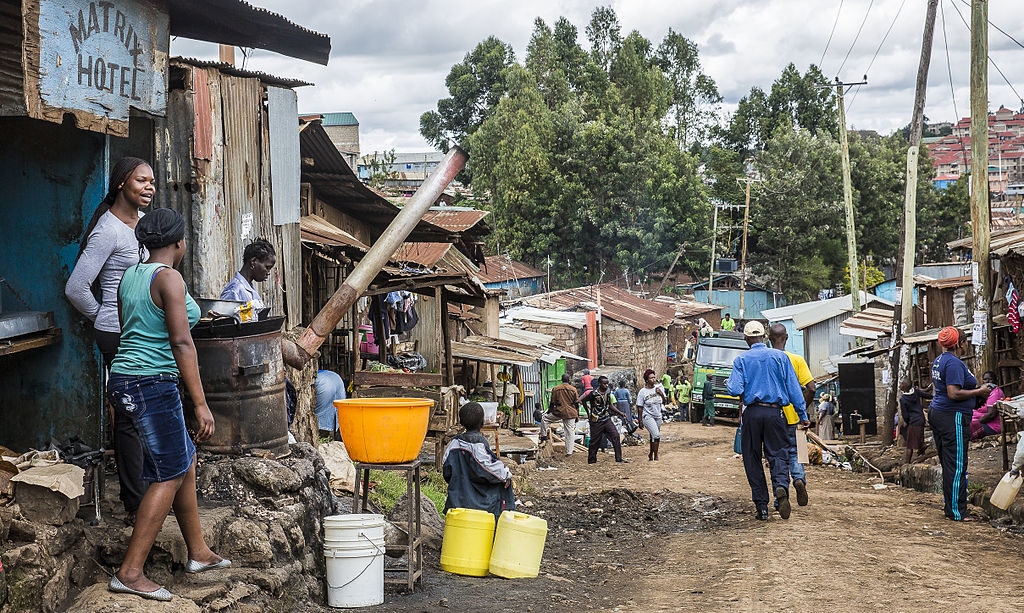While the focus on how Western cities deal with the Covid-19 crisis dominates our media, it is crucial to also analyse the situation in the Global South. Although the virus is not as widespread in the Southern Hemisphere, according to what we know, some of the poorest people are suffering the worst consequences.
More than 1 billion people worldwide are counted among the urban poor. They mostly live in informal settlements and are employed in the informal sector. According to UN Habitat’s Executive Director, Maimunah Sharif, informal workers and people living in informal settlements face a high risk of contagion with Covid-19. This is due to high numbers of malnutrition, respiratory diseases, tuberculosis, HIV/AIDS and other diseases associated with a lack of access to hygiene facilities.
For example, the informal settlement of Kibera in Kenya’s capital city has more than 2.5 million inhabitants (CNBC), making it the largest informal settlement on the African continent. Most of the people living in Kibera are employed locally. The current crisis challenges them on multiple levels, such as:
- Loss of economic opportunities
- Lack of access to health services
- No access to health protection materials, such as face masks
- High density, therefore no way to comply with social distancing measures
- Potential for social problems and exposure to domestic violence
In Europe, most of us can lean on some kind of support system during the crisis. In poorer contexts, such as Kibera, this is usually not applicable, which is why many informal workers continue with their day and night jobs. They are usually not able to implement measures such as social distancing, working from home or applying the prescribed hygiene measures.

How can we better protect all parts of society in the face of a pandemic, particularly members of the informal economy? One of the answers is to increase urban resilience. This concept, pioneered by the Rockefeller Foundation with their 100 Resilient Cities project, aims at enabling cities to bounce back from any stresses and shocks without a lasting impact on the urban environment. The concept of resilience is usually applied to environmental disasters, but the current crisis is making urban planners rethink it. Now and in the future, we also need to consider health risks and ways to make our cities more resilient to them. This is particularly important when it comes to informal settlements.

A resilient city is a city that has “the capacity of individuals, communities, institutions, businesses and systems within a city to survive, adapt, and grow no matter what kinds of chronic stresses and acute shocks they experience” (100 Resilient Cities). For an informal settlement like Kibera, this means that there is a need for people-centred interventions that can improve the city’s or settlement’s resilience – both during and after a crisis.
While every informal settlement is different, several lessons can be learned from interventions in Kibera:
- Tackling a crisis needs an action-oriented approach that is tailored to the physical living conditions
- Using the communities’ internal organisation, their local knowledge and their expertise is crucial to prevent the spread of the virus
- A sustainable response and recovery is the goal – this means that the resilience strategy should apply to future disasters as well
- Structures for community engagement and leadership as well as access to affordable services and socio-economic safety nets are crucial in informal settlements
- Full protection from evictions is another important way of creating more safety in informal settlements; it is also part of the right to the city
In practice, informal settlements like Kibera are now working hard on improving access to water and sanitation. Awareness raising through youth groups, trainings on hand washing as well as community mobilisation are important tasks carried out by UN Habitat and other organisations. In Kibera, the new hand washing stations are supporting women and youth entrepreneurship. Even after the crisis, they will provide a new stream of income, making the settlement more resilient at the same time.
Urban planners must work hard to improve resilience in cities, particularly in poor or informal urban contexts. They can learn from examples like Kibera when it comes to community mobilisation and finding ways to fight the crisis that will last. Improving sustainability and resilience will prepare all of us, in the end, to be better prepared for future crises.
